Search
Remove Ads
Advertisement
Summary
Loading AI-generated summary based on World History Encyclopedia articles ...
Answers are generated by Perplexity AI drawing on articles from World History Encyclopedia. Please remember that artificial intelligence can make mistakes. For more detailed information, please read the source articles
Search Results
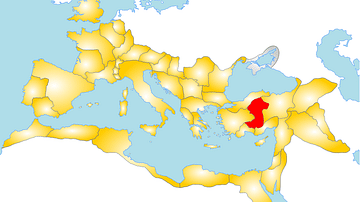
Definition
Galatia
Galatia was a region in north-central Anatolia (modern-day Turkey) settled by the Celtic Gauls c. 278-277 BCE. The name comes from the Greek for "Gaul" which was repeated by Latin writers as Galli. The Celts were offered the region by the...
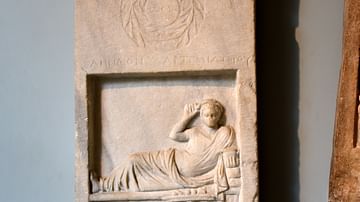
Article
Curses & Fines on Epitaphs
The concept of a curse laid on a tomb or gravesite is best known from ancient Egypt but the practice was quite common in other civilizations of antiquity. The tomb or grave was the eternal home of the physical remains of the deceased to which...
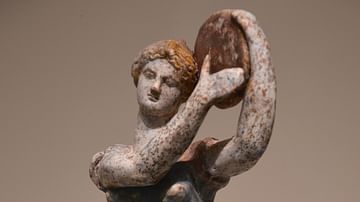
Definition
Tympanon
The tympanon (tympanum in Latin) was the most popular frame-drum in ancient Greek music, producing a loud rumbling sound not far from the sound of the orchestral timpani drums today. This percussion instrument was played mainly by women on...
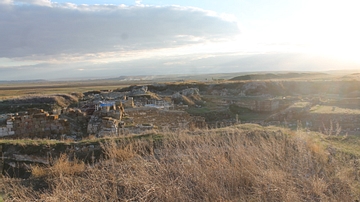
Image
Gordium, capital city of ancient Phrygia
In the ninth century BCE, Gordium became the capital of the Phrygians, a Thracian tribe that had invaded and settled in Asia.

Definition
Trojan War
The Trojan War was fought between Greeks and the defenders of the city of Troy in Anatolia sometime in the late Bronze Age. The story has grabbed the imagination for millennia but a conflict between Mycenaeans and Hittites may well have occurred...
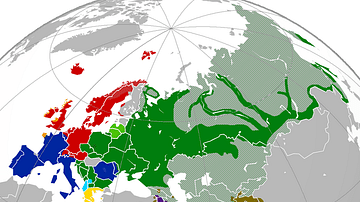
Definition
Indo-European Languages
The Indo-European languages are a family of related languages that today are widely spoken in the Americas, Europe, and also Western and Southern Asia. Just as languages such as Spanish, French, Portuguese and Italian are all descended from...
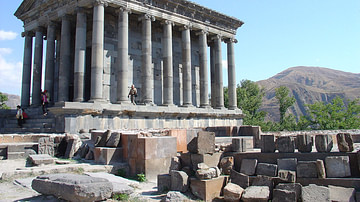
Definition
Ancient Armenia
Ancient Armenia, located in the south Caucasus area of Eurasia, was settled in the Neolithic era but its first recorded state proper was the kingdom of Urartu from the 9th century BCE. Incorporated into the Persian Empire of Cyrus the Great...

Definition
Croesus
Croesus (r. 560-546 BCE) was the King of Lydia, a region in western Asia Minor (modern-day Turkey) and was so wealthy that the expression "as rich as Croesus" originates in reference to him. Best known for his wealth, he is also famous for...
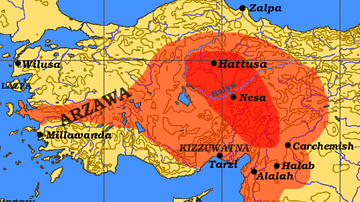
Definition
Kaskians
The Kaska or Kaskians were a tribe of the Pontus, northern Anatolia (today's Turkey), around the Kizil Irmak river mouth, bordering on and constantly harrasing the Hittite empire. That area is mostly mountainous in nature, and there the Kaska...
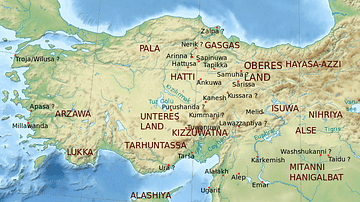
Definition
Hayasa-Azzi
The Hayasa-Azzi were an indigenous Bronze Age tribal confederation which flourished on the plateau of ancient Armenia and eastern Anatolia between c. 1500 and c. 1200 BCE. Although the historical record is impoverished and disputed regarding...